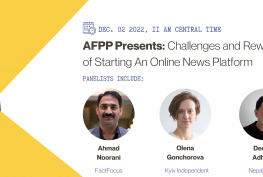A game called Polly is designed to promote literacy

A silly phone game, developed through research at Carnegie Mellon University, may give people with low reading and writing skills in the developing world access to information that others throughout the world take for granted.
The research came out of continuous brainstorming to develop technologies for developing regions, with a focus on illiterate or low literate people. The research sought to reach out to illiterate people in the developing world. Taking 1 1/2 years to complete, the research shows that entertainment can be quite helpful in connecting people with automated phone systems and allowing access to information. Phone services are popular in countries with large numbers of people with low literacy
The process begins with a cellular-phone subscriber who wants to send a message to someone he or she knows. The subscriber calls a given number at no cost. Then the subscriber receives an automated call back from the new game-like system, called Polly. Polly will allow the subscriber to record a message, who can then listen to it in a variety of voices, sometimes humorous mimicking sounds, such as a parrot speaking.
After choosing a voice for the message, the subscriber will then have an option to forward the audio message to one of his friends or relatives.
The system also has an option to listen to recorded information about job opportunities. Every day, a number of jobs are uploaded on the system from newspapers, for the illiterate people who cannot read it in papers or through other technological means.
In the CMU research project, a phone number was circulated among five low-skilled people in May 2012. The number of people who eventually tapped into the number has since increased to 160,000 mostly through people sending messages to their friends via Polly, thereby introducing them to Polly’s amusing message service.
The goal of the research is to increase awareness of the potential of mobile phones to access information, to increase familiarity and comfort while interacting with automated systems, and to provide job information, according to the researchers.
The research was conducted by a visiting graduate student from Pakistan, Agha Ali Raza, who had been working with Roni Rosenfeld, a professor in CMU’s School of Computer Science. An associate professor of computer sciences at Lahore University of Management Sciences in Pakistan also collaborated in the research.
According to Mr. Rosenfeld, Polly has the ability to spread advocacy messages to the illiterate communities using the system. It can be used to impart messages about education or health to vulnerable groups of people while using telephonic entertainment.
The service also has just been launched in India. Initially, it is being launched in Kannada, one of the regional languages of Bangalore in India.




